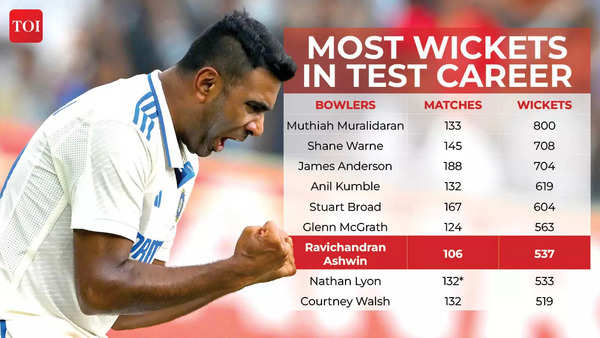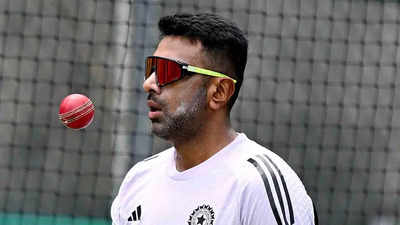Did the rejection hurt him so bad that he couldn’t take it anymore? This question has left the Indian cricket world in a tizzy as R Ashwin – India’s second highest Test wicket-taker – announced his shock retirement from international cricket on a rain-soaked Tuesday afternoon in Brisbane.
This wasn’t in the script for the 537-wicket man. It wasn’t too long ago that Ashwin had said he would retire the day he goes past Anil Kumble’s record of 619 Test wickets. Over the years, he had accepted the fact that Ravindra Jadeja would play ahead of him in overseas Tests because of the latter’s spunk with the bat. But was being downgraded to the No. 2 off-spinner in a touring party behind Washington Sundar the last straw?
Rejections are something Ashwin had learned to live with as a young cricketer. He was still learning the ropes when he was rejected midway through a trial match at the India Pistons ground in Chennai. The coach told him he need not turn up for the second day of the game.
Then, during his first year as a Chennai Super Kings player, an official told him to vacate the team hotel and not come back, till he was recalled.
At that point it did hurt, but it didn’t break Ashwin. “Believe me, there is nobody in this world who will tell you he has not been rejected – be it Sachin Tendulkar or Don Bradman – they’ve all faced rejections. As for me, facing rejections was the biggest learning curve I had, I have embraced it and tried to learn from it,” Ashwin told TOI during a recent interview.

It was probably a deep conviction in his craft that helped Ashwin soldier on for so long. A slightly confused teenager who wasn’t sure whether he would become a batter or a pace bowler, ended up becoming a spinner when a back injury almost finished his playing career.
“I don’t know if I am an accidental spinner. But honestly, I think whatever happened, happened for the right reasons. Maybe this was my destiny, and I just had all these things that had to happen so that I could turn into a spinner,” Ashwin said.
For the offie, spin bowling became an “expression of an art form”. He treated it “like a software that continuously needed upgradation”.
While those tireless hours of working on the stock-ball – the off-break – always remained, his love of experimentation grew. One of the first from his armory was the carrom ball in 2010, a mystery weapon that Sri Lankan spinner Ajantha Mendis had used against India two years earlier. “I had seen Ajantha in a camp in Chennai when he was nowhere close to the national team. He was bowling that delivery and pitching it with the same incredible regularity that we used to try in street cricket and fail. I parked that idea in me and when I saw Ajantha doing it for Lanka, I knew I had to try it,” Ashwin said.
That was the willingness of a boy in his early 20s to learn new things. But even as he grew older, Ashwin had to come up with new tricks without compromising on his primary weapon, the off break. There were rough patches along the way. In 2013, sections of the media started calling him “the scientist” when things didn’t go his way.
“I have a creative side, a deep-thinking side to me. And sometimes when I want to share those stuff and talk about it to people, you don’t often find synergies. So sometimes I felt that’s been a stumbling block and people have misunderstood me for that,” Ashwin tried to explain his tendency to polarize opinion over the years.
But that never stopped him from becoming one of India’s greatest match-winners, especially at home. Making the most of spin-friendly conditions, his partnership with Ravindra Jadeja has yielded an incredible 856 Test wickets, making them one of the most lethal duos of all time.
“I am jealous of his abilities but totally admire him. I have learned to admire him for the last 4-5 years… Sometimes when you are in the race along with your co-cricketers, you want to get ahead of one another even inside It’s like brothers going up in arms. That admiration has gone one step higher. totally inspired by what he has done,” was how Ashwin explained his admiration for a man who often kept him out of the Indian XI on international assignments, even for one last time in Brisbane.
